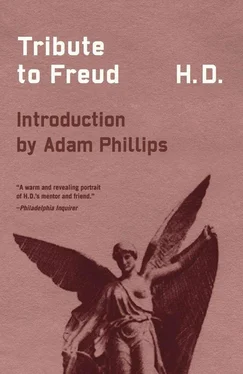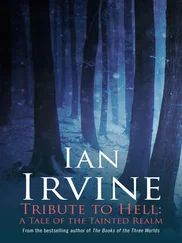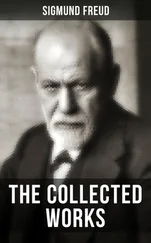I don’t remember it, I don’t think of it. Only it was a restatement of his philosophy, but it came too late.
I don’t mean that.
I have carefully avoided coming to terms with Lawrence, the Lawrence of Women in Love and Lady Chatterley.
But there was this last Lawrence.
He did not accept Sigmund Freud, or implied it in his essay.
I don’t want to think of Lawrence.
“I hope never to see you again,” he wrote in that last letter.
Then after the death of Lawrence, Stephen Guest brought me the book and said, “Lawrence wrote this for you.”
Lawrence was imprisoned in his tomb; like the print hanging in the waiting room, he was “Buried Alive.”
We are all buried alive.
The story comes back automatically when I switch off the bed-lamp.
I do not seem to be able to face the story in the daytime.
Yes, it was abomination. I could see it writhing. “It’s only a caterpillar.” Perhaps I cannot really talk yet. I am seated at one remove from a doll-chair, on the porch. I look down the wide wooden steps. There is the grapevine, as we called it, and leaf-shadows. They are crouched under the grape arbor. I can scream, I can cry. It is not a thing that the mind could possibly assimilate. They are putting salt on the caterpillar and it writhes, huge like an object seen under a microscope, or looming up it is a later film-abstraction.
No, how can I talk about the crucified Worm? I have been leafing over papers in the café, there are fresh atrocity stories. I cannot talk about the thing that actually concerns me, I cannot talk to Sigmund Freud in Vienna, 1933, about Jewish atrocities in Berlin.
March 6, Monday
I dream Joan and Dorothy are arguing. Joan possesses herself of some boxes and jewel-cases of mine: she treates my dream treasures as common property, spreads them out on a table. I am angry at her casual appropriation of my personal belongings. I take up one red-velvet-lined box (actually Bryher had got this for me in Florence) and say passionately, “Can you understand nothing ?” Joan is a tall girl, we stand level, challenging each other. I say, “Can’t you understand? My mother gave me this box.” I press this red-velvet-lined red-leather Florentine box against my heart. Actually, physically, my heart is surcharged and beating wildly at the vehemence of my passion.
I recall the Phoenix symbol of D. H. Lawrence and of how I had thought of the Professor as an owl, hawk, or sphinx-moth. Are these substitutions for the scripture hen gathering her chicks?
My daughter was born the last day of March with daffodils that come before the swallow dares out of The Winter’s Tale. Richard had brought me many daffodils, that English Lent-lily.
I have been reading James Jeans’s Stars in Their Courses, and am reminded of my bitter disappointment when a well-meaning young uncle called me to the nursery window. “Look,” he said, “there is the Bear in the sky.” I blinked from the frosty winter-window. I had been shown the frost-flowers, like stars, in kindergarten. That satisfied me. But here was another wonder. I gazed and blinked but there was no Bear to be seen. When I told this to Dr. Sachs, he said, “Such a small child would hardly register such a disappointment.” Perhaps I explained it badly. I was shocked that my uncle should deceive me. Surely, a small child would feel the hurt, or the practical joke, feel that a grown-up was playing some trick. I don’t know what sort of a Bear I expected to find there, but a white bear, a polar-bear, a snow-bear might not be impossible, as there was (and I knew that) Santa Claus with his reindeer who sped over the roofs of our town on Christmas Eve. We did not see him, of course, for he liked to give us our presents secretly. But the uncle assured me that the Bear was there and he would show me a picture of it.
The Professor has found me a thick rug now, for the couch. He always seems interested when I tell him of my animal findings and fairy-tale associations. At least, it was not my father who deceived me. The Professor said I had not made the conventional transference from mother to father, as is usual with a girl at adolescence. He said he thought my father was a cold man.
But our father took us out one evening in the snow and bought us a box of animals. He divided them afterwards, as we had done with the Punch and Judy dolls. There seemed no friction among the three of us, as to the choice of dolls or later of the animals. My older brother took the elephant of course, I had the elk, the small boy had the polar-bear. I should have liked the bear but we had first choice in order of age, then second choice. I don’t remember what our second and our third choice was.
The big boy of course took Punch and I had Judy and the little boy loved Joey. That was all right. Then Gilbert took the policeman of course, I had the beadle, the little boy had — surely there was another doll, I know it worked out. I can’t remember the sixth doll — or did we compromise and give him Toby the dog?
The Professor had first written me that he would be ready to see me “next year, January or February.” This is next year, but we decided to wait, as he said he feared the “polar-bear weather” might upset me. I remember writing him that I wanted to come in March, whatever the weather might be. Yes — it was in London in March that I heard from America of the death of my father, though he must have died in February. My mother died too in March but eight years later. The word reached me at Riant Château, Territet, where she had been with us, on the first day of spring, 1927.
Again, I feel, lying on this couch that a sort of phosphorescence is evaporating from my forehead and I can almost breathe this anodyne, this ether.
Am I reminded of happy release from pain and the fortunate auspices, predicted for my daughter who arrived in the vernal equinox, and at the high tide of the sun, at noon exactly?
Surely the high tide of her stars brought fortune to me.
Some of these things I touched on with the Professor. I cannot classify the living content of our talks together by recounting them in a logical or textbook manner. It was, as he had said of my grandfather, “an atmosphere. . ”
I don’t know why I pick on Joan and Dorothy, two devoted friends in London. That is, they are devoted to each other; I am really only an acquaintance. Do I associate them with my aunts? Poor Aunt Laura was so happy when my mother told her, when she visited us in Switzerland, that she could have all her clothes. Joan and Dorothy are substitutes, rivals for my mother’s love. It does not matter who they are. We were together in Florence, too. My modest jewels are precious to me, for their association, a string of smoke-sapphires or star-sapphires and a bracelet (from a shop where at one time Cellini had been master silversmith), some leather frames and old paperbacked Tauchnitz editions, rebound in the patterned red-lily parchment paper.
When I switch off my bed-light, I realize that I might have seen Lawrence there.
March 7
I dream of Havelock Ellis with his white beard. We had once talked of old English public houses or pubs as they call them. We go on with this conversation. I don’t remember what it led up to, but he talks about the “doors.” I finally think in my dream, “He has forgotten I am a woman and do not go into pubs or saloons — men evidently discuss various pubs and pub-doors like this among themselves.” But it is Havelock Ellis, propped up in bed, who has the role of the invalid or analysand while I who sit beside him am the analyst.
Then Havelock Ellis becomes the analyst in the Professor’s place but, reclining on the couch, I think, “Havelock Ellis will be bored, he doesn’t really care for psychoanalysis nor really know much about it; how can I expect him to be interested or to understand me?” We then seem to go on with the conversation in an ordinary way; he wants to find a French girl “with a perfect accent.” I say, “My daughter has a perfect accent.” I wake to realize that someone is rapping — a letter is slipped under my door.
Читать дальше











